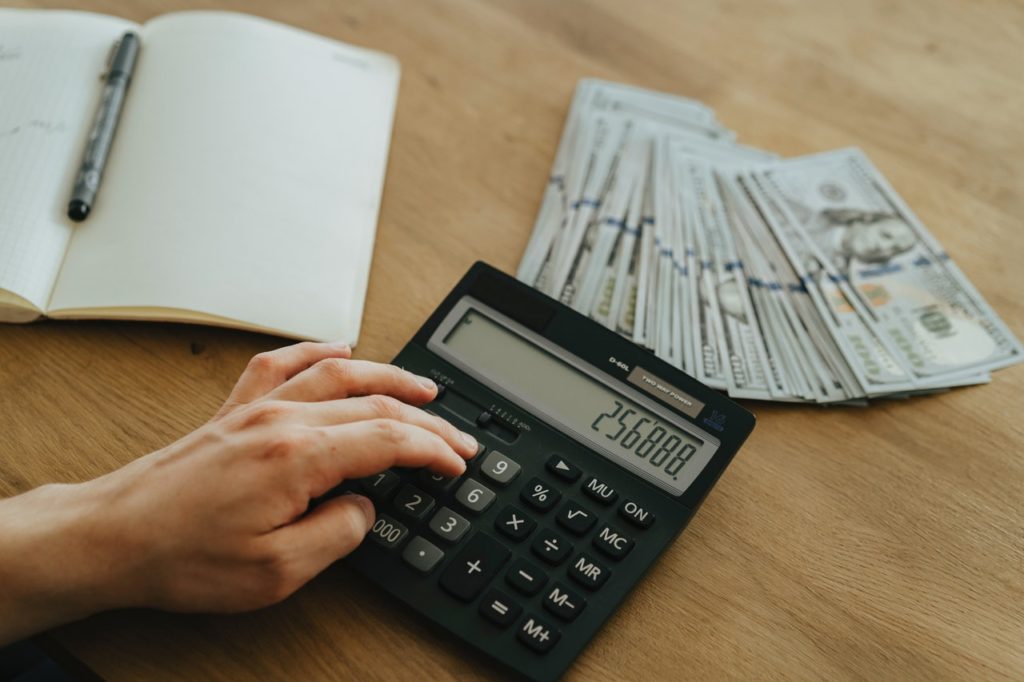
When you’re buying a home, among the most important factors to consider during the purchase is the amount of taxes that you’ll be required to pay on the property in question. Along with the main costs of obtaining a mortgage, you will also be required to pay property taxes and premiums on insurance policies. The property taxes that you pay are directly correlated to the price of your home, which means that property taxes increase with higher-priced homes. If you purchase a home for $1.2 million, your property taxes will be higher than they would be if you bought a $400,000 home. If you want to reduce the amount of property taxes that you pay, it’s possible to claim a homestead exemption in California.
A homestead exemption gives you the ability to exclude a certain portion of your home value when the tax assessment occurs, which means that you will end up paying lower taxes for the year. Let’s say that the homestead exemption is $50,000 and your home is worth $300,000. With the homestead exemption in place, taxes would only be assessed on $250,000 of your home. In the event that you file for bankruptcy, homestead exemptions could protect you from having your property seized. If the total amount of equity that you currently have in your home is less than the homestead exemption amount, creditors aren’t allowed to seize the property.
When you’re in the midst of buying a home, make sure that you ask your real estate agent about the homestead exemption and if it would apply to your home. It’s important to understand that homestead exemptions are typically automatic, which means that you won’t need to do anything to obtain the benefits of this exemption. This article offers an in-depth look at homestead exemptions and when they can be used in California.
Key Takeaways:
- Homestead exemption is the act of removing part of your home’s value from taxation so your taxes are lowered overall.
- This process differs significantly in each state but it is important to look into to help save you money and give you protection from creditors.
- The exemption usually occurs on an annual basis and eligibility differs per state. Check this out below!
How Does a Homestead Exemption Work?

The exact rules and guidelines for homestead exemptions can differ significantly from state to state. Keep in mind that not every state has a homestead exemption that homeowners can gain access to. There are also some states that have limited exemptions that only apply to specific individuals. In California, anyone who owns a home and currently lives in it can obtain a homestead exemption that lowers the property taxes they are required to pay.
Along with how the exemption is properly applied, the amount of protection that this exemption provides against creditors differs from state to state. In certain states, homeowners will need to file for the exemption before they can benefit from it. However, other states apply the exemption automatically. Because of how much this exemption can vary across states, it’s important that you look at your specific state to determine how the exemption will apply to you once you purchase a home.
Keep in mind that homestead exemptions can only apply to a person’s main residence. Even if you own another residential property, the exemption would not apply. As touched upon previously, the exemption reduces the amount of your home value that’s assessed when taking property taxes into account. If you own a home that’s worth $900,000 but have an exemption for $100,000, only $800,000 of the home value would be assessed when identifying the amount of property taxes that you would be required to pay.
Protection from Creditors Under the Exemption

Along with having your property taxes reduced, another key benefit of the homestead exemption is that it will provide you with a certain amount of protection from creditors as long as the amount of equity in your home falls below the exemption amount. Depending on the state, the protection from creditors can range from $5,000-$500,000. However, the majority of states fall in the $25,000-$50,000 range. Keep in mind that these limits don’t apply to the value of your home but are instead centered around the amount of equity that you have. The equity of a property refers to the value of your property minus the total balance of your mortgage and any other financial claims that are held on the property.
If you have recently purchased a $400,000 home with a down payment of $80,000, the equity that you have in your home would amount to $80,000 plus any mortgage payments that you’ve made since the purchase. In the event that the equity you hold in the home is less than the state limit, you won’t be forced to sell your home to any creditors you owe. When your equity is higher than the state limit, your creditor could force you to sell the property. In this situation, you could keep some of the proceeds from the sale of the home.
Despite the protection that you gain from the homestead exemption, it’s important to understand that this protection doesn’t apply to secured creditors, the primary of which would be the bank that holds your mortgage. If unsecured creditors attempt to seize your home when making claims against your assets, they would be unable to if your equity is below the homestead exemption limit.
In some states, there are limits placed on the amount of acres that the home can be situated on for the exemption to apply. For instance, the homestead exemption in Alabama is only available with properties that are less than 160 acres in size. These acreage limits aren’t in place for the majority of states. When looking specifically at the bankruptcy protection afforded by the homestead exemption, the federal bankruptcy law states that your home can’t be sold if the equity that you have in the home isn’t higher than $25,150.
This law only applies to bankruptcy cases that have been filed at some point after April 1, 2019. For any cases filed before this date, the exemption amount is set at $23,675. While the federal bankruptcy law could be applied to your situation, most states have laws that supersede these, which places the limit at a higher amount. As mentioned previously, the bankruptcy protection only applies to creditors that are unsecured. If the bank that currently holds your mortgage decides to foreclose on your property, the homestead exemption would not apply.
Eligibility for Homestead Exemption
If you’re trying to determine who is eligible for a homestead exemption, eligibility guidelines vary by state. In California, anyone who owns the property and lives in it for the majority of the year will be able to claim the homestead exemption. Only the individual who is considered to be responsible for the primary mortgage will be able to claim this exemption.
Certain states only offer homestead exemptions to specific groups of people. For instance, senior citizens and veterans may be able to obtain a larger homestead exemption in states like Georgia. In California, there’s no reason that you shouldn’t be eligible for the homestead exemption when you purchase a property. However, the property will need to be your primary residence if you want to apply the exemption to your property taxes.
How to Claim the Exemption

Claiming the exemption is a simple and straightforward process in the majority of states. In a subset of states, homeowners will need to apply for the homestead exemption on an annual basis. Other states will apply the exemption automatically. If you decide to claim an exemption, you will typically need to do so before April 1 every year. When you claim this exemption, you will likely be required to provide proof that you own the property in question.
For veterans and senior citizens, additional verification of age or veteran status may need to be given when applying for the exemption. While the homestead exemption is applied automatically in states like California, you can still choose to file a homestead declaration with the county clerk, which means that your homestead won’t be lost even after you sell your home.
Considerations for Homestead Exemption in California
There are some considerations that you should keep in mind about the homestead exemption in California. In the state of California, anyone who owns a property and currently lives in it will be able to claim a standard homestead exemption. If you are a single homeowner, the exact amount of the exemption that applies to your home is $75,000. In the event that you are a head of a household, the equity exemption amount is set to $100,000.
For physically disabled individuals and senior citizens over the age of 65, the exemption amount is currently $175,000. This specific exemption also applies to people who make less than $15,000 every year. If you are a senior citizen over the age of 65 with a home that’s valued at $400,000, property taxes would only be assessed on $225,000 of your home. In the event that you pay a one-percent property tax each year, the amount of taxes that you would pay after claiming the homestead exemption would be $2,250, which is much lower than the $4,000 that you would be required to pay without the homestead exemption.
If you have any questions about the homestead exemption and if it applies to your property, consider speaking with a mortgage broker or your real estate agent. These individuals can answer any questions that you might have about the process. Homestead exemptions are highly beneficial tax breaks that can help you save a significant sum of money every year. Since the exemption is applied automatically in California, all you need to do is sit back and enjoy the benefits that come with owning a home.